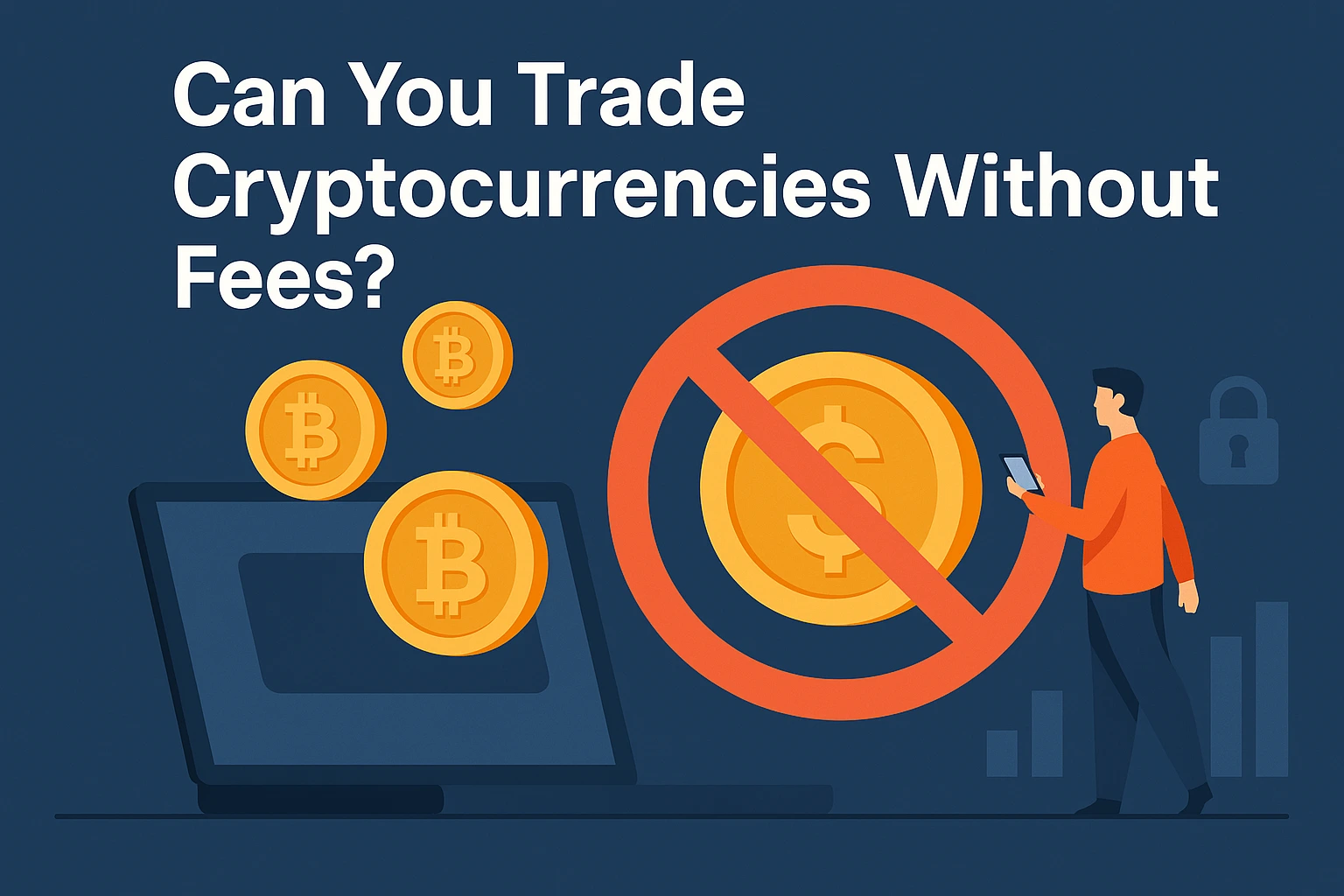Robinhood brings its commission-free ethics to cryptocurrency trading, but it currently offers few cryptocurrencies and there is no way to transfer crypto assets outside the platform. There are cryptocurrency exchanges that offer you the option to buy bitcoin without commissions. However, there are services that charge a higher price when they sell bitcoin and offer to buy bitcoin at a price below market value. That’s the only way they can make a profit and keep their business.
Wilhelmina Randtke is a data checker and expert in law, technology and publications. The user does not control the keys of the Coinbase wallet also offers secured custody wallets for investors and traders to store their investments. They have insurance against data breaches and hacking, and their cash is stored in bank accounts secured by the Federal Deposit Insurance Corporation (FDIC), which is important as users have reported that accounts have been hacked and funds exhausted. Coinbase escrow accounts are very convenient for newer users who only get their feet wet, but Coinbase owns the private keys of the coins, not the investor.
It is only compatible with Bitcoin and not with other cryptocurrencies. The ability to withdraw cryptocurrencies from an exchange is extremely important in the cryptocurrency community. With Robinhood, you can invest and trade cryptocurrencies, but you cannot withdraw and spend them as you wish. One drawback is that you don’t yet control private keys, similar to Coinbase.
Many cryptocurrency communities refer to this concept as “not your keys, not your currency.”. This means that if you don’t have the private keys of the wallet in which the coins are stored, they are not your property. We chose Bisq because it is an open source decentralized exchange with no Know Your Customer (KYC) requirements. Not designed for active trading, Bisq is a downloadable software and decentralized exchange of Bitcoin and cryptocurrencies between peers, so it has no central point of failure and cannot be eliminated, just like Bitcoin itself.
Bisq has no custody, which means that no one but the user touches or controls the user’s funds. It differs from centralized exchanges, such as Coinbase, in that Coinbase controls the user’s funds in a custodial account where the user does not have the private keys. In that scenario, Coinbase has the right to freeze your account if it considers your account activity suspicious, whether the activity is illegal in your location or not. Bisq is instantly accessible to anyone with a computer or smartphone, as there is no registration process or KYC rule.
This makes it ideal for privacy seekers, dissidents living within an oppressive regime, or anyone without government-issued identification. Binance is suitable for people who want to trade or invest in lesser-known altcoins. Binance offers more than 50 different cryptocurrencies to trade and is a good option for anyone who wants more advanced charts than most other exchanges. The features, charting capabilities, and data that come with your account are truly impressive, especially if you consider their reasonable fees.
The first and most common type of exchange is centralized exchange. Popular exchanges that fall into this category are Coinbase, Binance, Kraken and Gemini. These exchanges are private companies that offer platforms for trading cryptocurrencies. These exchanges require registration and identification, which is known as the Know Your Customer (or Know Your Customer) rule.
All exchanges listed above have active trading, high volumes and liquidity. That said, centralized exchanges are not in line with Bitcoin’s philosophy. They run on their own private servers, which creates an attack vector. If the company’s servers were compromised, the entire system could shut down for some time.
Worse, sensitive data about your users could be published. The largest and most popular centralized exchanges are by far the easiest way to access for new users, and even provide some level of insurance in case their systems fail. While this is true, when cryptocurrency is purchased on these exchanges, it is stored in your custody wallets and not in your own wallet from which you hold the keys. The insurance provided is only applicable if the exchange is at fault.
If your computer and Coinbase account, for example, are compromised, you would lose your funds and probably wouldn’t have the ability to claim insurance. This is why it is important to withdraw large sums and practice safe storage. Decentralized exchanges work in the same way as Bitcoin. A decentralized exchange does not have a central point of control.
Instead, think of it as a server, except that every computer within the server is spread all over the world, and an individual controls every computer that is part of that server. If one of these computers shuts down, it does not affect the network because many other computers will continue to work on the network. Because of this decentralization, such exchanges cannot be subject to the rules of any regulatory body, since no specific person or group is running the system. People who participate come and go, so there is no individual or group that a government or regulatory body can realistically pursue.
This means that those who operate on the platform do not have to declare their identification and are free to use the platform in any way they choose, whether legal or not. Cryptocurrency exchanges also come in centralized and decentralized formats. Centralized exchanges are closely aligned with the financial regulations of government authorities (such as the U.S. UU.
(US), and many will secure their cash deposits, as well as requiring proof of identity to use the platform. Decentralized exchanges are unregulated online exchanges hosted on distributed nodes that are owned by users and there is no centralized governing authority. While this may seem scary, decentralized exchanges offer transparent transactions and fees and a direct exchange between cryptocurrency pairs. To buy cryptocurrency, most centralized exchanges allow you to deposit funds through your bank account, credit card or debit card.
You can then exchange those funds for the cryptocurrency of your choice. While some offer a simple “Buy Now” type transaction that only offers one market order, some exchanges will allow you to set more advanced order types, including limit and stop orders. Digitex Futures Exchange (DFE) is a peer-to-peer trading platform that offers users to trade cryptocurrencies with no transaction fees. This cryptocurrency exchange has relied on Ethereum blockchain technology to operate as a cutting-edge cryptocurrency futures platform that does not incur commissions.
Lykke Wallet is one of the cryptocurrency exchanges with the lowest fees. In Lykke Wallet, it is possible to trade cryptocurrencies without any commission. The trading fee on Lykke Wallet is zero for all assets: Bitcoin, Ethereum, other cryptocurrencies and fiat currencies. This 0 tariff policy applies to both retailers and API merchants.
It means that at Lykke, it is possible to trade Bitcoin literally without paying fees, even if you use a bot for algorithmic trading. Our zero commission policy makes the Lykke Wallet cryptocurrency exchange attractive for high-frequency trading. Learn more about connecting your bot to Lykke Wallet via the API here. That means that not only do you have to make money with cryptocurrencies, but you must earn an additional 3% at least to pay Coinbase before you see any gains.
However, there are still many small-scale but reliable crypto platforms, such as those on our list above, that allow you to trade the most lucrative digital assets without commissions. Lykke differentiates itself by allowing traders on its platform to exchange and exchange any cryptocurrency instantly without paying any fees. Trading fees and commissions decrease your profits over time without realizing it and make a difference in your long-term wealth, especially if you make frequent trades. A commission-free cryptocurrency exchange can retain a small percentage of profits without fees consuming your capital on every trade.
While it may seem additional to pay for a subscription free of charge for cryptocurrency trading, for high-volume investors and intraday cryptocurrency traders, this is a very small price to buy, trade and sell cryptocurrencies without paying any fees or commissions. Cryptocurrency exchanges and brokers can charge a deposit and withdrawal fee when moving funds to and from their platforms. While the fees for cryptocurrency trading are generally higher than in other markets, there are ways to reduce them. Each cryptocurrency exchange has a different fee, and you should carefully research each option before making a purchase.
It’s also important to understand how your cryptocurrency is stored and whether you can take custody of that cryptocurrency by transferring it to your own digital wallet. Creator fees are usually lower, as a new order listed on the platform provides liquidity and helps the exchange of cryptocurrencies. Cryptocurrencies, such as Bitcoin (BTC), Ethereum (ETH), Litecoin (LTC), Bitcoin Cash (BCH), and Ripple (XRP) are the future of the financial world. Integration on the exchange provides faster trading of compatible digital currencies with no transaction fees, at the best cryptocurrency prices available.

Unapologetic social mediaholic. Professional webaholic. Beer scholar. Avid travel junkie. Incurable crypto geek.
